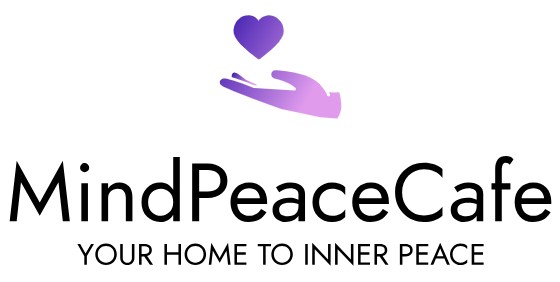Journey to Serenity: Navigating Zen and Transcendental Meditation

Embarking on a journey to inner peace and mental clarity, you may find yourself at a crossroads wondering, ‘Which meditation practice suits me best?’ In the age of mindfulness, the quest for tranquility and self-discovery has led many to explore the realms of Zen Meditation and Transcendental Meditation. Each method offers its own path to serenity and insight, but understanding their nuances is crucial in choosing the right one for your individual needs. This guide aims to unravel the distinct qualities of both practices, unveiling their origins, techniques, and profound benefits. Through this exploration, you will uncover the wisdom needed to align your wellness aspirations with the perfect meditative journey for you.
1. Understanding Zen Meditation
Zen meditation, a practice deeply rooted in ancient traditions, offers a pathway to inner peace and self-discovery. At its core, Zen emphasizes the importance of mindfulness, encouraging individuals to be fully present in the moment and to cultivate a heightened awareness of their surroundings. This mindful state is often nurtured through focused breathing and maintaining a proper posture, aligning the body, mind, and spirit. By delving into the principles of Zen meditation, practitioners seek to transcend the chaos of the everyday world and connect with a tranquil, centered state of being.
Beyond the immediate spiritual benefits, Zen meditation has been linked to numerous advantages for mental and physical well-being. Research suggests that regular practice can lead to reduced stress, improved concentration, and enhanced emotional resilience. Moreover, some studies have indicated potential benefits for managing anxiety and depression, making Zen meditation an appealing prospect for those seeking holistic wellness and mental clarity.
In understanding Zen meditation, it becomes clear how its guiding philosophies revolve around simplicity, presence, and the pursuit of inner peace. Clarity of mind, heightened awareness, and a profound sense of tranquility are all hallmarks of this ancient practice, offering a transformative journey for those ready to embrace its wisdom.
Origins of Zen Meditation
The origins of Zen meditation trace back to ancient roots in East Asia, particularly within the teachings of Buddhism. Zen, derived from the Chinese word Chán, which in turn comes from the Sanskrit term Dhyāna, emphasizes the profound practice of meditation and the direct experience of enlightenment. With its origins in India, the journey of Zen meditation unfolded as it traveled through China and eventually found its way to Japan, where it flourished and became deeply embedded in Japanese culture.
Beyond its geographical journey, Zen meditation has left an indelible mark on cultural and philosophical landscapes. Its focus on direct realization and experiential wisdom has influenced art, literature, and the very fabric of Eastern philosophy. The simplicity and clarity of Zen teachings have also resonated with individuals around the world, inspiring a global following and a quest for spiritual understanding.
Today, the cultural significance of Zen meditation continues to thrive, invigorating modern mindfulness practices and shaping insights into the nature of human consciousness. Its rich historical tapestry, empowered by the wisdom of generations, remains a testament to the enduring allure and profound impact of this ancient practice.
Key Techniques and Focus
In Zen meditation, the journey to tranquility and self-discovery begins with mastering fundamental techniques intertwined with profound focus. Central to this practice is the cultivation of mindful breathing, encouraging individuals to find stillness and awareness through rhythmic and intentional respiration. Conscious breathing serves as a foundation for grounding the mind and nurturing a deep sense of presence, guiding practitioners toward a heightened state of consciousness and inner peace.
Additionally, the significance of posture in Zen meditation cannot be overstated. The alignment of the body is regarded as pivotal in fostering harmony between the physical and spiritual dimensions. Through cultivating a stable and comfortable posture, participants create a conducive environment for meditation, allowing energy to flow freely and facilitating a sense of tranquility and focus.
Moreover, the core focus in Zen meditation revolves around maintaining a clear and undisturbed mind. Practitioners are encouraged to observe their thoughts in a nonjudgmental manner, gently returning their attention to the present moment whenever distractions arise. By honing this practice, individuals develop a profound ability to navigate the complexities of the mind and embrace a state of serene awareness, fostering mental clarity and emotional well-being.
Health Benefits of Zen Meditation
Zen meditation has garnered attention for its array of mental and physical health benefits, backed by compelling research. Studies have highlighted its potential to reduce stress, anxiety, and symptoms of depression. By fostering a state of calm awareness, individuals may experience a notable decrease in stress levels, paving the way for enhanced emotional well-being and resilience. Furthermore, the practice of Zen meditation has been linked to improved concentration and cognitive function, offering a potential boost in mental clarity and focus.
On a physical level, the benefits of Zen meditation extend to the realm of holistic wellness. Research suggests that regular practice may contribute to lowered blood pressure, reduced inflammation, and improved immune function. These physiological enhancements signify the profound impact of Zen meditation on overall health, emphasizing its potential to bolster the body’s resilience and enhance vitality.
Moreover, the emotional and physical benefits of Zen meditation intertwine to create a holistic approach to well-being. By nurturing a harmonious balance between mind and body, individuals embark on a transformative journey toward optimal health, vitality, and mental clarity, positioning Zen meditation as a compelling practice for those seeking a comprehensive approach to wellness.
2. Exploring Transcendental Meditation

Transcendental Meditation offers a profound pathway to inner peace and self-discovery, utilizing a unique and personalized approach. At its core, this practice involves the use of a specific mantra, individually assigned to practitioners, to facilitate a deep state of relaxation and heightened awareness. Unlike many other forms of meditation, Transcendental Meditation does not require effort or concentration, making it easily accessible to individuals of all ages and lifestyles. The simplicity and personalized nature of this practice allow for a seamless integration into daily routines, offering a gentle yet transformative journey to inner tranquility.
One distinguishing aspect of Transcendental Meditation lies in its emphasis on effortless mindfulness. This technique provides individuals with a practical means to reach a state of deep rest while remaining fully alert. By harnessing this effortless mindfulness, practitioners may experience reduced stress, improved clarity of thought, and an overall sense of rejuvenation and vitality. This approach aligns with the belief that tapping into deep reservoirs of inner peace and tranquility can lead to profound benefits for mental, emotional, and physical well-being.
Moreover, Transcendental Meditation has garnered interest for its potential to address a spectrum of health concerns. Research has suggested that regular practice may contribute to reduced anxiety, lower blood pressure, and enhanced cognitive function, offering a comprehensive approach to wellness that extends beyond the boundaries of traditional meditation practices.
Introduction to Transcendental Meditation
Transcendental Meditation introduces individuals to a practice deeply rooted in ancient Vedic traditions, encapsulating a philosophy of inner exploration and self-realization. The foundational philosophy behind Transcendental Meditation revolves around the idea of accessing a transcendent state which lies deep within every individual. By engaging in this meditative practice, practitioners seek to delve beyond the surface layers of thought and consciousness, ultimately reaching a profound state of inner calm and clarity. This journey aligns with the fundamental goals of Transcendental Meditation—to cultivate a deep reservoir of peace, enhance self-awareness, and unlock the full potential of the mind.
Central to the philosophy of Transcendental Meditation is the belief that tapping into this transcendent state holds the key to unlocking creativity, intelligence, and happiness. This ancient practice aims to offer individuals a transformative approach to harmonizing the mind, body, and spirit, fostering balance, resilience, and a sense of profound tranquility. By embracing this foundational philosophy, practitioners embark on a journey toward nourishing their inner selves and achieving a state of profound serenity and well-being.
Furthermore, the goals of Transcendental Meditation extend beyond personal enrichment, emphasizing a broader vision of interconnectedness and global harmony. By nurturing individual well-being, this practice seeks to facilitate a ripple effect of positivity, empathy, and understanding, envisioning a world where inner peace can transcend boundaries and create a more harmonious and compassionate society.
Mantra Usage and Mindfulness
Transcendental Meditation distinguishes itself through the use of personalized mantras and a unique approach to mindfulness. The personalized nature of the mantras, carefully selected for each individual by trained instructors, serves as a catalyst for transcendence and deep relaxation. These ancient sounds, assigned based on specific qualities of the practitioner, are employed effortlessly during meditation, allowing individuals to access profound states of consciousness and self-awareness. This distinctive feature sets Transcendental Meditation apart, offering a personalized, yet universal, method to access inner peace and heightened awareness.
Mindfulness within the practice of Transcendental Meditation is approached with an effortless quality, emphasizing the seamless integration of deep rest and heightened alertness. This unique approach to mindfulness encourages individuals to effortlessly transcend the ordinary boundaries of thought and consciousness, cultivating a state of relaxed awareness and inner tranquility. By seamlessly integrating these principles, practitioners of Transcendental Meditation experience a harmonious balance between deep rest and heightened mental clarity, fostering a transformative journey to inner peace and vitality.
The use of mantras and the approach to mindfulness in Transcendental Meditation intertwine to offer practitioners a deeply personal and transformative experience. This personalized and effortless approach distinguishes Transcendental Meditation, creating a holistic pathway to inner peace, heightened self-awareness, and an enduring sense of well-being.
Scientific Studies and Outcomes
Modern scientific research has shed light on the myriad of benefits stemming from the practice of Transcendental Meditation, offering compelling insights into its positive outcomes. Studies have revealed that this form of meditation can lead to reduced cortisol levels, indicating decreased stress and enhanced emotional resilience. Additionally, Transcendental Meditation has been associated with improved cardiovascular health, with research suggesting a potential decrease in blood pressure and a lowered risk of heart disease. These findings underscore the profound impact of Transcendental Meditation on holistic well-being, extending its benefits beyond mental tranquility to encompass physical vitality and resilience.
Furthermore, insights into the outcomes of Transcendental Meditation have highlighted its potential to enhance cognitive function. Studies have indicated that regular practice may lead to improved attention, memory, and overall cognitive performance. This mental sharpening underscores the deep-rooted impact of Transcendental Meditation on brain health and mental acuity, contributing to a comprehensive approach to well-being that spans both the mind and body.
Moreover, scientific inquiries into the outcomes of Transcendental Meditation have delved into its potential for cultivating emotional well-being. Research suggests that the practice can lead to reduced symptoms of anxiety and depression, offering individuals a transformative pathway to emotional balance and resilience. These scientific revelations affirm the profound impact of Transcendental Meditation, illuminating its potential to foster a harmonious relationship between mind, body, and emotional well-being.
3. Choosing the Right Practice for You
When it comes to choosing the right meditation practice, it’s essential to consider your unique preferences and wellness objectives. Understanding the distinctive qualities of each method can be pivotal in selecting the approach that resonates most deeply with your individual needs and lifestyle. If you prioritize a practice rooted in simplicity and a profound connection to the present moment, Zen meditation might be the ideal fit. On the other hand, if you seek a personalized and effortless pathway to inner tranquility and heightened self-awareness, Transcendental Meditation could offer the transformative journey you’re looking for.
Assessing your daily routine and personal inclinations can also play a crucial role in determining the right meditation method for you. Consider the level of structured guidance you may desire, the time and space available for your practice, and the extent to which a specific approach aligns with your spiritual and wellness aspirations. Whether you’re drawn to the deep-rooted traditions of Zen meditation or the personalized nature of Transcendental Meditation, understanding your own rhythms and preferences will steer you toward the most conducive and enriching practice.
Moreover, seeking guidance from experienced practitioners or instructors can offer valuable insights and support as you navigate this decision. Their expertise and understanding of the nuances of each practice can illuminate the path forward, empowering you to make an informed decision that aligns harmoniously with your unique journey toward inner peace, self-discovery, and holistic well-being.
Lifestyle Compatibility
When contemplating which meditation style suits you best, it’s important to take into account the demands and rhythms of your daily routine. If your schedule is often characterized by a fast-paced lifestyle with limited free time, a meditation style that seamlessly integrates into your day may be more suitable. For instance, if you find that you thrive in moments of quiet introspection during a busy day, brief and structured meditation practices like mindfulness techniques might complement your lifestyle seamlessly. On the other hand, if you can dedicate longer periods to your practice, a more immersive and traditional meditation style such as Zen meditation may be an excellent match.
Considering your energy levels and the ebb and flow of your daily activities is essential in determining the compatibility of a given meditation style with your lifestyle. Some individuals might find that they are more inclined towards highly structured practices that provide clear guidance, while others may thrive in more open-ended and personalized approaches. Assessing your natural inclinations and rhythms can help align your meditation practice with your daily routine, offering a harmonious and sustainable pathway to well-being.
Moreover, reflecting on the environmental settings where you can carve out moments for meditation can provide valuable insights. If you are drawn to natural and tranquil spaces, an outdoor meditation practice might resonate deeply with you. Alternatively, if you cherish moments of solitude and peace within your living space, exploring meditation methods that cater to these inclinations can offer a serene and harmonious complement to your daily life.
Personal Goals and Aspirations
Understanding your personal wellness and spiritual goals is key to finding the meditation approach that best aligns with your aspirations. If your primary goal is to foster a deep sense of calm and tranquility in your everyday life, a meditation practice that emphasizes mindfulness and breath awareness might be a perfect match. On the other hand, if you seek to explore spiritual growth and self-discovery, a practice rooted in ancient traditions, such as Zen meditation, can provide a profound and enriching journey. By being attuned to your individual aspirations, you can tailor your meditation practice to serve as a transformative ally in reaching your spiritual and wellness objectives.
Moreover, recognizing your emotional and mental well-being targets can offer invaluable clarity when selecting a meditation approach. If you are aiming to enhance resilience in the face of stress and cultivate emotional balance, meditation styles that emphasize stress reduction techniques and emotional well-being may offer the support you seek. Likewise, if cognitive sharpness and mental clarity are at the forefront of your goals, meditation practices known for enhancing concentration and cognitive function could be a perfect complement to your journey.
Considering your unique spiritual and emotional goals can empower you to select a meditation approach that acts as a catalyst for personal growth, self-awareness, and holistic well-being. By harmonizing your aspirations with a compatible meditation practice, you embark on a transformative journey toward inner peace, self-discovery, and spiritual nourishment.
4. Incorporating Meditation into Your Routine
Incorporating meditation into your daily routine can be a transformative and enriching practice, irrespective of the method you choose. To seamlessly integrate meditation into your life, start by identifying pockets of time within your day that can serve as sanctuaries for introspection and renewal. Whether it’s a few minutes of quiet reflection in the morning, or a mindful break during a busy day, embracing these moments can lay the foundation for a consistent and sustainable meditation practice. Additionally, consider creating a dedicated space in your home that invites peace and serenity, enhancing the ambiance for your meditation practice and providing a soothing environment for your inner journey.
Finding resources and guidance tailored to your chosen meditation method can bolster your practice and enrich your journey. Seek out experienced instructors, online communities, or meditation apps that align with your preferences and provide support as you embark on this transformative path. These resources can offer valuable insights, personalized guidance, and a sense of community, nurturing a space for growth and learning as you incorporate meditation into your life.
Embracing flexibility and patience is pivotal as you begin your meditation journey. Allow your practice to evolve naturally, adapting to the ebb and flow of your life. By nurturing a sense of openness and receptivity, you create room for your meditation practice to flourish, becoming a steadfast companion in your daily life, nurturing well-being, and fostering inner harmony.
Establishing Consistency
Establishing a consistent meditation practice begins with finding the optimal time in your schedule that aligns with your energy levels and daily rhythm. Whether it’s in the tranquil moments of the early morning, or as a peaceful pause before bed, selecting a time that resonates with you can set the stage for a sustainable routine. By anchoring your meditation practice to a specific time, you infuse it with a sense of regularity, making it a natural and harmonious part of your daily life.
To maintain consistency, consider integrating your meditation practice with existing daily rituals or activities. By weaving meditation into familiar routines, such as taking a few mindful breaths before a meal or engaging in a brief session of reflection during a break, you cultivate an effortless synergy between your meditation practice and daily life. This seamless integration not only nurtures consistency but also fosters a sense of interconnectedness, infusing each moment with intention and mindfulness.
Moreover, nurturing flexibility within your consistent practice is essential. Embrace the ebb and flow of life by being adaptable with your practice. Some days may call for shorter sessions, while others allow for more extensive periods of introspection. Trusting this flexibility allows your practice to evolve naturally, adapting to the nuances of your daily life while remaining a steadfast and enriching companion on your wellness journey.
Access to Guidance and Training
When delving into the realm of meditation, accessible guidance and reliable resources can serve as invaluable companions on your journey. For those seeking support and training in Zen meditation, consider exploring local meditation centers or seeking out qualified instructors who can impart the wisdom of this profound practice. These seasoned practitioners offer personalized guidance, lending their expertise to help you navigate the nuances of Zen meditation and providing a nurturing environment for your growth. Additionally, an array of books, online courses, and meditation apps are available, offering comprehensive resources that cater to diverse learning styles and preferences, nurturing a sense of community as you delve into the practice.
Similarly, for those intrigued by Transcendental Meditation, a wealth of resources and guidance awaits. Certified instructors trained in this method can provide personalized mantras and offer valuable insights into the practice, fostering a deep and enriching understanding of Transcendental Meditation. Online communities and forums can also offer a platform for sharing experiences and seeking advice, creating a space for mutual support and growth. Furthermore, meditation centers and retreats tailored to Transcendental Meditation provide immersive experiences, allowing individuals to delve deeper into the practice and cultivate a heightened sense of self-awareness and tranquility.
By exploring the wealth of available resources, individuals can access the support and guidance needed to enrich their meditation practice, nurture their well-being, and cultivate a transformative and enduring relationship with meditation.
What’s the best time to meditate, and for how long should I do it?
The best time to meditate is the time that fits into your daily routine and allows you to be most present and relaxed. Many people find the early morning or before bed as ideal times. As for duration, start with a few minutes daily and gradually extend the duration as you become more comfortable with the practice.
How can I choose between Zen and Transcendental Meditation?
The choice between Zen and Transcendental Meditation depends on your personal preferences, spiritual goals, and lifestyle. Zen emphasizes simplicity and mindfulness, whereas Transcendental Meditation offers a personalized approach with mantras. Consider exploring both methods and seeking guidance from experienced practitioners to find the practice that aligns best with your aspirations.
Can I combine Zen and Transcendental Meditation practices?
It’s possible to combine elements of Zen and Transcendental Meditation into your practice, as long as the combined approach resonates with your well-being goals. However, it’s essential to ensure the compatibility of the techniques and seek guidance to integrate them effectively into a harmonious routine.
How do I maintain a consistent meditation practice?
To maintain consistency, establish a designated time for meditation that aligns with your daily schedule. Integrate meditation into existing daily rituals, ensuring that the practice becomes an inherent part of your routine. Embrace flexibility and patience to allow your practice to evolve naturally, adapting to the ebb and flow of your life.




